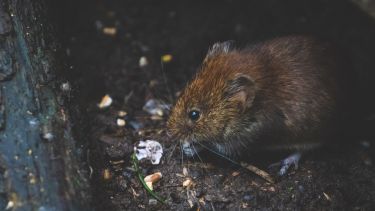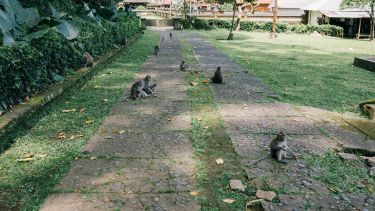Diego Exposito - Positive duties towards liminal animals: ethics, politics, and practices

About my PhD
My thesis addresses the ethical and political obligations we have towards wild animals living in areas under human control, commonly referred to as ãliminal animalsã. Traditionally, the realms of animal ethics and animal politics have primarily focused on animals in captivity, such as those on farms, in zoos, laboratories, and homes. However, there is a growing recognition of the need to extend these considerations to free-living animals. Specifically, my thesis examines our ethical obligations as individuals and our collective political duties towards a specific subset of free-living animals: those inhabiting spaces controlled by humans. These spaces encompass urban environments, rural areas, agricultural lands, and managed national parks.
Within my thesis, I argue that the prevailing ethical and political theories compel us to acknowledge our obligations to assist these animals. After doing this pure theoretical work, I delve into practical scenarios, namely population control, food production, and urban planning. In these sections, I analyse our current practices in these domains and propose interventions based on the ethical and political theories previously analysed.
Why I'm interested in this topic
My interest in animal ethics began during my undergraduate studies in Philosophy. Over time, as I delved deeper into the subject, I developed a fascination with wild animal ethics. This field, I found, was both unexplored and, in my view, of tremendous importance.
The driving force behind this interest lies in the substantial suffering that occurs in the natural world. There's a prevailing belief that animals in their natural habitats lead idyllic lives, often referred to as "the idyllic view of nature." However, disciplines such as welfare biology have convincingly demonstrated otherwise. For most wild animals, life is marked by an ongoing struggle for survival, encompassing battles against diseases, accidents, harsh weather conditions, scarcity of food and water, and predation. These circumstances raise profound ethical and political questions: should we take action to alleviate this suffering? Are our responsibilities towards wild animals limited to refraining from causing harm? Or, should we provide assistance when necessary? Various theories approach these questions differently, yielding diverse responses. I find these topics deeply intriguing and consider them of great importance.
What's new about my work
While there are several researchers (although not many) working on discerning our duties towards wild animals in general, there are only two books that examine this for liminal animals, and no other person working full time on this. This topic is novel in itself, as well as the approach I am taking, based on reviewing what different ethical and political theories imply for these animals.
What I hope to achieve
I tend to be humble with the scope of my research. While I would want it to influence how people and institutions relate to liminal animals, I am aware that a sole thesis in a single field of study will not provoke this. For that reason, I like to think of what I do as part of a collective effort to change how things work for animals. Also, I would want my thesis to be useful for other researchers, so they can use it to do further research.
What's most interesting to me about my research
I find the practical aspect of my thesis especially interesting. While I enjoy dealing with ethical and political principles, and I think they are important, what I like the most is applying them to real-life cases and analysing what they have to say in different contexts and for different individuals.


